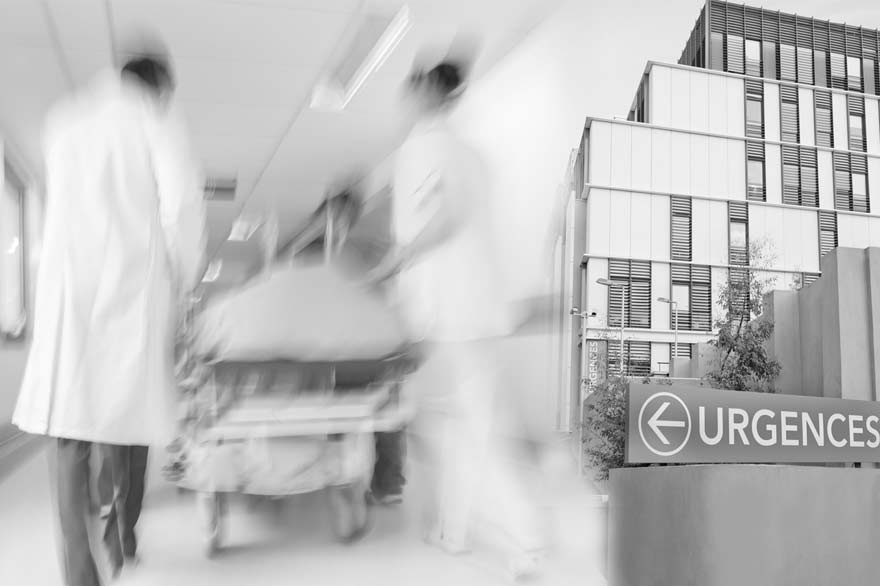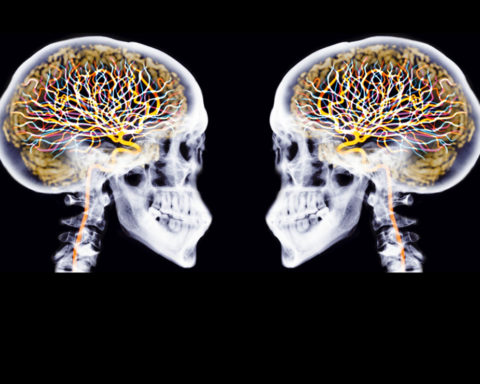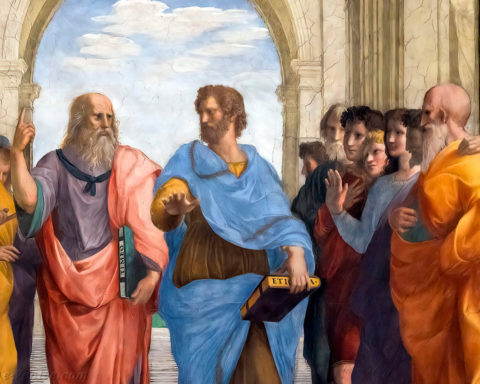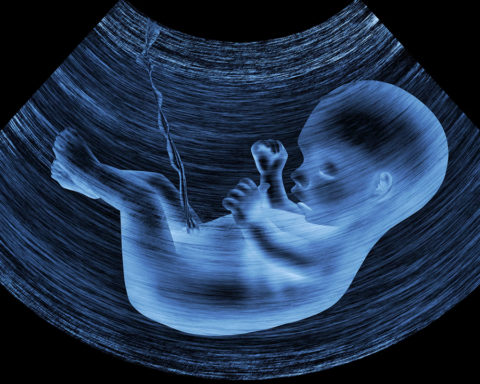The crisis in public hospitals, community hospitals and the medico-social sector concerns us all and is the most glaring evidence of the need for a citizen reappropriation of health issues. The hospital and EHPAD crisis is an indication of a systemic or global crisis in the health system and that everything must therefore be rethought at the same time. Following the appeal launched on 16 January by the one thousand hospital doctors and health executives, several hundred signatories launched a new appeal, refusing to see the humanist principles of the French system disintegrate and calling for a national consultation to preserve it.
Cand appeal has already been signed by a wide range of people from various backgrounds, including a very large number of citizens, well-known personalities, intellectuals, specialised researchers, artists, etc. (1). He was the subject of a first publication in the newspaper liberation on February 12, 2018. It follows the appeal launched by hospital doctors and health executives in January: Hospital: a thousand signatures and an emergencyThis is the first time that the system is running out of steam and the working conditions of hospital staff are deteriorating.
The quality of care and attention we need is increasingly threatened despite the dedication and humanity of the people to whom we entrust our lives, often leaving us and our loved ones in terrible distress.
The suffering at work of doctors, nurses, orderlies and paramedics affects us all. Alarm bells are ringing in all sectors: emergency, paediatrics, geriatrics...
The suicide of a neurosurgeon at his workplace in an operating theatre of the Grenoble University Hospital Centre led the Minister of Solidarity and Health to order a report about the working conditions in this hospital. This report highlights services under stress, situations of conflict, ill-treatment and suffering at work linked to the management and reorganisation of services imposed from above, under budgetary pressure and without consultation.
We are committed to the public hospital and our social health system, which guarantees us access to the latest medical advances. However, some healthcare services are outdated, bordering on insalubrity, even in some hospitals in France's largest cities. This situation is unworthy of our collective history.
Our social health care system is our common good. Its future cannot be decided without us. The signatories of this appeal refuse to see its humanist principles of solidarity and access for all disintegrate because of dogmatic and unsuitable logics of profitability, pricing and organization.
They believe that there is no simple solution, but they are convinced that safeguarding our health care system is a societal choice that requires a major national debate. The hospital is the place from which our entire health system can be rethought: its organization, its financing, its mode of governance, its place and its link with city medicine, community health, and residential institutions for dependent elderly people, places where there is also great human suffering. This is why they call for the organisation of a general assembly on health in all its dimensions and throughout the national territory. This great democratic debate is imperative and urgent.
Why the call?
The crisis in public hospitals, community hospitals and the medico-social sector concerns us all and is the most glaring evidence of the need for a citizen reappropriation of health issues.
This call came shortly before the Prime Minister's announcement of a plan to transform the health care system. This plan is to be presented in the summer of 2018, and in the meantime the Prime Minister has indicated that a reflection and a national consultation will be conducted. They ask: With whom will this reflection and consultation be organized? Who will lead the reflection? Who will be consulted? To what extent will the results of this consultation be taken into account?
This citizen appeal is more necessary than ever. They wrote "our social health system is our common good. Its future cannot be decided without us". This point is important, essential even. It means that we want to regain our role as citizens in the choices that are made in the area of health care and hospitals in particular. For too long we have been dispossessed of this major social issue and the policies/reforms of successive governments over the last few years have been carried out in total disregard of the realities on the ground and without the slightest democratic debate.
The choice of budgetary restrictions coupled with the imposition of so-called "governance" methods imported from the private sector and imposed from "above", combined with cumbersome administrative logics that are completely disconnected from the care and concern of the individual, have created a completely crazy and headlong rush situation, the most visible repercussions of which are those of a deterioration in the working conditions of hospital staff with serious consequences on the quality of the care and treatment of individuals.
- For more than 15 years, researchers, economists, sociologists and ergonomists (this list is not exhaustive) have deplored the fact that the work of carers has been largely forgotten in hospital restructuring and reform. All surveys converge on this point.
- All indicators are in the red: structural increase in the absenteeism rate, turn over accelerated between departments, early retirements, ...
- Of course, the hospital players have not remained passive: since the 2000s, we have seen an increase in the number of mobilisations, some of them sporadic, others on a larger scale, as in 2009 and again in 2017. Calls for help have piled up. The latest to date is that of the 1,000 doctors and nurses or health managers, ...
- Despite all these warning signals, against a backdrop of denial by administrative and political decision-makers, public policies seem to be put on automatic pilot, with political alternation having little impact:
* The tightening of the budget constraint has been constant for more than 10 years.
* The T2A continued to be deployed within an increasingly tight budget: it is certainly necessary to make more and more stays, with human resources that do not follow, but the following year the rates drop to "stay within the envelope". Caregivers have the impression of being hamsters condemned to turn faster and faster in their wheel.
* Employment, like the budgets for missions of general interest (hosting the most precarious, etc.), have served as budgetary adjustment components.
* In the end, the hospital is faced with an entropic or increasingly chaotic logic: the demotivation of staff and the increase in absenteeism are placing the burden of increased productivity on a few, exhausted, on the verge of burn out.
* The worst is that the government is extending this deadly logic to the chronically underfunded medico-social sector (EHPAD).
- In the end, all the actors say that you get to the bone, that not only does suffering at work become the norm of care, but they also feel they are doing a dirty job, which, for people who have taken this path out of vocation and taste for the other, is deeply deleterious on the psychological level ("ethical and mental burden" of work).
- In the end, it is the most fragile, seriously ill and dependent elderly people who suffer from this situation and who suffer from a deterioration in the conditions of care.
Why leave the hospital?
This call is by no means intended to be "hospitalocentric". On the contrary, they believe that the hospital and HITCH crisis is an indication of a systemic or global crisis in the health system and that everything should be rethought at once. This crisis will not be solved by patching compartment by compartment.
They wanted to follow in the footsteps of the 1,000 doctors, nurses and health managers who have called for support for their initiative, while proposing to go further by opening a major democratic debate on health.
The hospital is indeed the epicentre of the crisis in the health system, but it is also a republican institution whose principles of public service, solidarity and devotion should irrigate the whole reorganisation of the health system that we are calling for.
- The hospital is the only public link in the health care offer, which is favoured by the population, alongside a town medicine mainly based on the liberal model and a private sector of clinics among the largest and most concentrated in Europe (the first three groups represent 34 % of the 14.5 billion turnover of the sector).
- Hospitals are the segment of the health care supply whose expenditure is the most socialized (Social Security reimburses 91 % of hospital care compared to 63 % of city care).
- Over the past 15 years, the Hospital has become the place where all the dysfunctions in the supply of care, both upstream and downstream, are adjusted.
* Upstream, urban medicine is struggling to reorganize itself - even if there are encouraging developments - to become a genuine public primary care service accessible to all and at any point in the territory. Thus, the Minister never stops talking about the "ambulatory shift". It is in fact an "ambulatory mirage", as the reality is the opposite. We are in fact witnessing a transfer of activity from the city to the hospital because social security contributors are finding it increasingly difficult to find a doctor, especially a specialist, who, moreover, is in the conventional sector. Many doctors are no longer on call, and no longer go to patients' homes. They can then be found in the emergency rooms of public hospitals.
* Downstream, the medico-social and HPAE sector is chronically underfunded, leading to a crying lack of human and material resources... The result for acute care services is the phenomenon of bed blockers, these elderly patients who are often polypathological and who cannot find a place, despite the time spent on the phone by carers who have other things to do...
- Finally, the reform of hospital financing, activity-based pricing (T2A) has reinforced the slump by having a negative influence on both carers and patients. The former have seen an increase in work intensity and a considerable deterioration in their working conditions. The latter can only deplore the deterioration in hospital conditions and the increasing reduction in stays. The hospital has become inhospitable for both patients and carers.
In summary, the hospital crisis is a local expression of a much general disorganization and maladjustment of the health care system. It is not by carrying out yet another reform centred on the hospital segment alone that we will attack the roots of the ills.
Why a General Health Assembly?
We must be clear: the term "États-Généraux" - along with that of the "Grenelle" - has become a catch-all term, recovered technocratically to prepare a reform whose main lines have already been formulated before they take place. They absolutely do not want this type of high-mass framed and piloted from above and whose participants are carefully filtered according to their "representativeness" or their "responsibility".
On the contrary, they wish to rediscover the original inspiration of the Estates General, those of 1789, a time in our history when the people regained sovereignty and wondered what kind of society they wanted to live in. This call is a citizen's call in the sense that it aims to give a voice to all, to "ordinary" citizens, to those who experience the health care system in practice. It is time for the often overused term "health democracy" to take on a real meaning in the eyes of the population.
The reforms, mainly motivated by budgetary considerations, that have been piling up over the last 20 years have taken little account of the real work of carers and the concrete experience of patients. The debates have been confiscated by experts, senior officials, representatives of interest groups and political decision-makers. It is time for the health system, faced with unprecedented challenges (ageing, chronic diseases, ...), to be reappropriated by citizens. Our health system is at a crossroads.
Either we persevere with the current logic, and rampant privatization will continue against the backdrop of a sharpening crisis in the health care system... Worse, this crisis will fuel the privatization process by providing it with a golden pretext: "You see, the public system is not working well, so let's go back to the private system: so the minister plans to issue an old decree that will allow the dismissal of hospital civil servants... More generally, the hospital will become a Private Health Establishment of Collective Interest (ESPIC) in competition with clinics and other segments of the health care supply. This evolution is deadly for everyone: patients, caregivers, public budgets.
Either we give ourselves time for collective reflection and deliberation to discuss the fundamental principles that must underlie our system, to take stock of the challenges facing the system and consider how best to meet them, and to develop realistic but determined public policy perspectives to move the health system in the direction we want it to go.
(1) The citizen's call for a General State of Health was made on the initiative of : [in alphabetical order]
Philippe Abecassis, Economist | Yannick Bosc, Historian | Alima el Bajnouni, Lawyer | Nathalie Coutinet, Economist | Jean-Paul Domin, Economist | Fabienne Orsi, Economist | Frédéric Pierru, Politician












